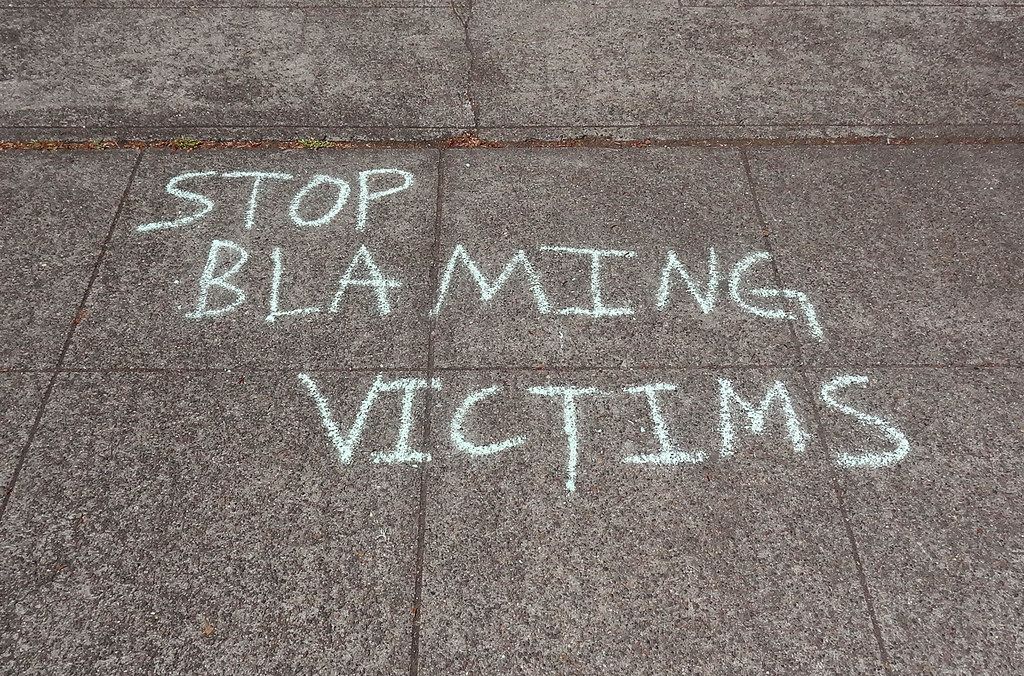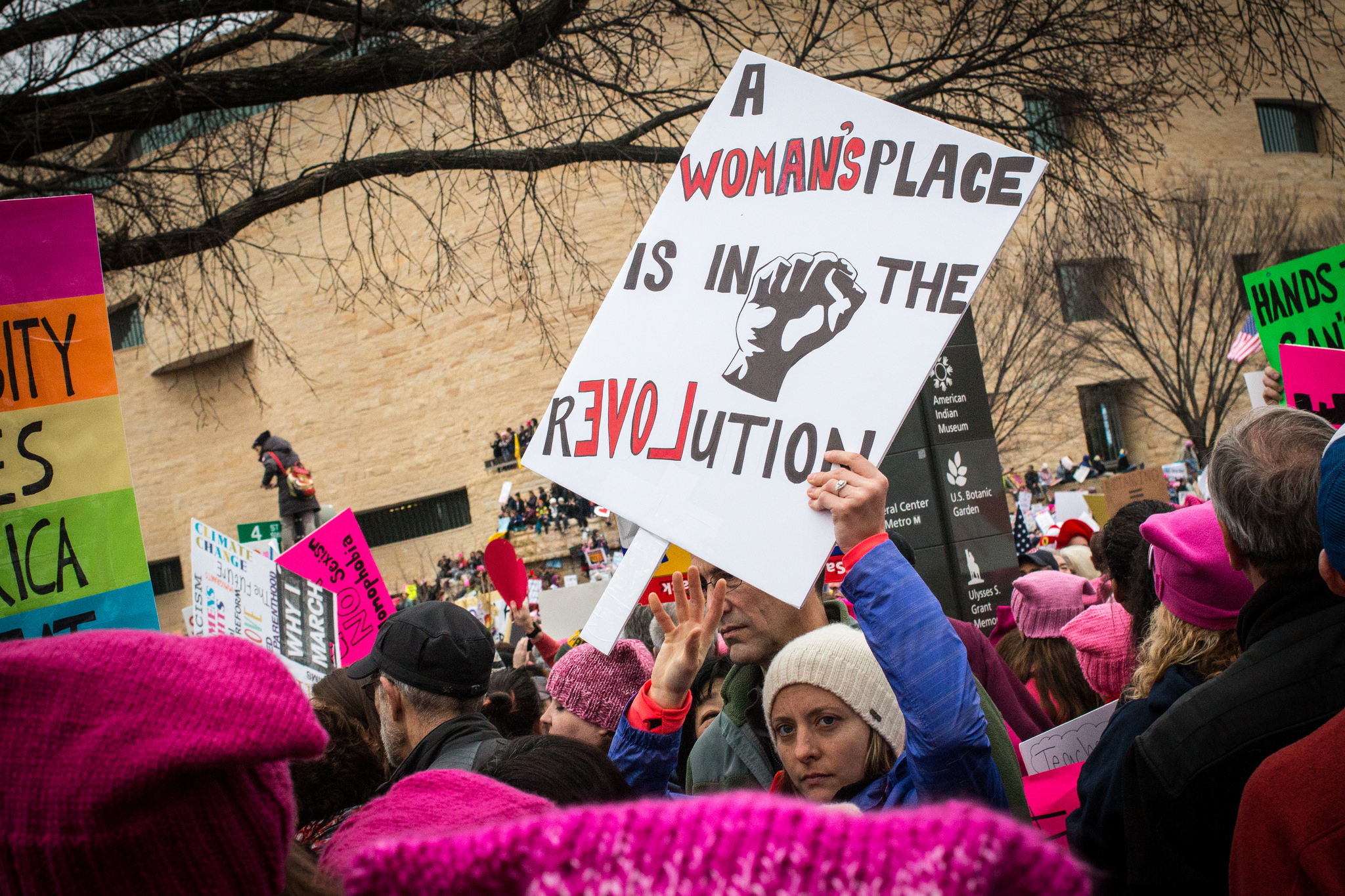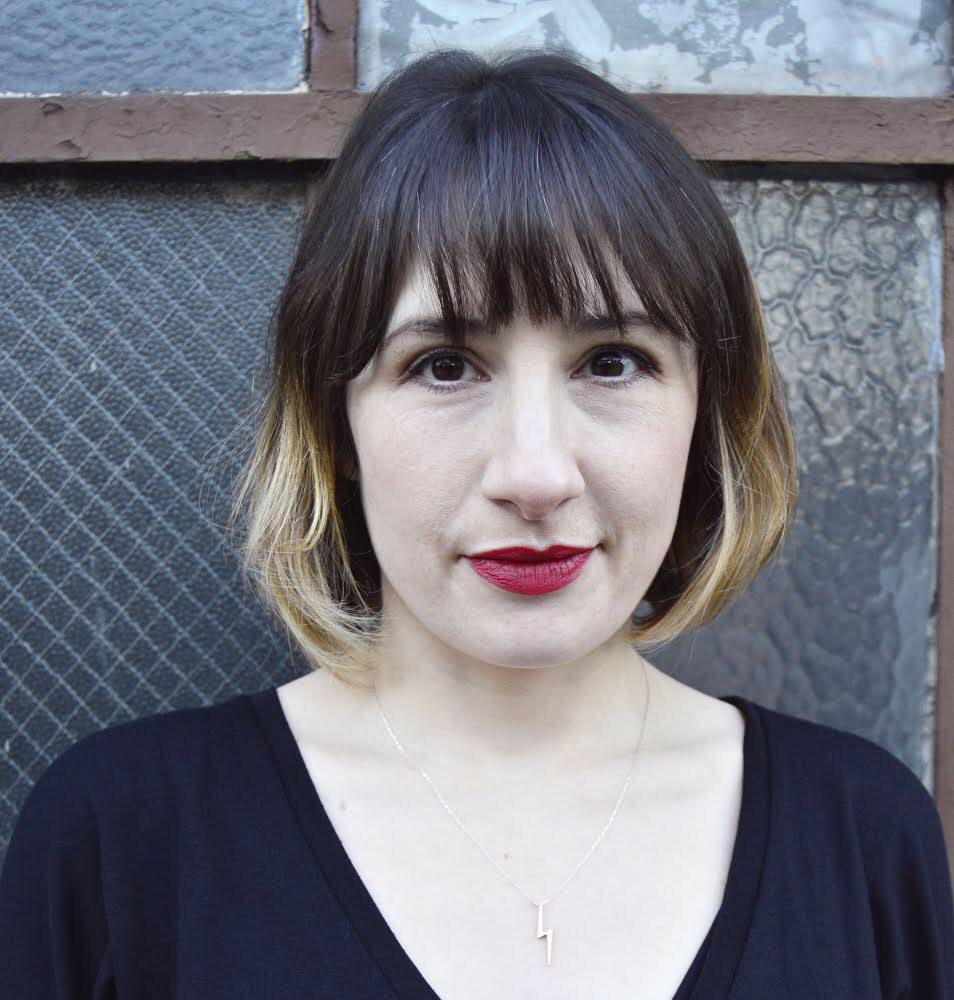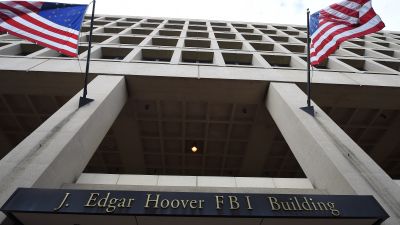
Stop blaming victims. (Photo by Wolfram Burner/ flickr CC 2.0)
This Q&A is part of Sarah Jaffe’s series Interviews for Resistance, in which she speaks with organizers, troublemakers and thinkers who are doing the hard work of fighting back against America’s corporate and political powers. This interview has been edited for length and clarity.
Studio moguls and CEOs are falling like flies due to ever-growing accusations of sexual harassment. Some wonder at the speed and breadth of the deluge. Some A-listers with less-than-credible histories fear a “witch hunt.” Others do not — like the millions of women who have already put themselves and their experiences forward on Alyssa Milano’s #MeToo meme.
If you’ve been sexually harassed or assaulted write ‘me too’ as a reply to this tweet. pic.twitter.com/k2oeCiUf9n
— Alyssa Milano (@Alyssa_Milano) Oct. 15, 2017
Sarah Jaffe recently spoke with two veterans of the fight against gender violence in all its forms. Mariame Kaba runs an organization called Project NIA, an abolitionist organization focused on ending youth incarceration, and has worked in domestic violence organizations, as well as anti-sexual assault organizations. She organizes with a project called Survived and Punished which is dedicated to ending the criminalization of survivors of domestic and sexual violence. Shira Hassan is the founder of Just Practice, which focuses on “community accountability” — or the idea that we can solve problems without using the police or state system. Specifically, Just Practice looks at sexual violence and intimate partner violence. Shira has spent the last 25 years working with young people in the sex trade industry.
Sarah Jaffe: I wanted to start off with a question for both of you who have been doing this work for a while: Do you feel like the conversation around sexual harassment and sexual violence in public, in the media, on social media has progressed at all? Does it look different right now from when you began doing this work?
Mariame Kaba: The conversation is absolutely different from when I started doing work around sexual assault. I began doing anti-sexual assault work on my college campus. That was in the late 1980s/early 1990s. The focus at that point was really on the question of date rape on campus and the conversation revolved mostly around people drinking and how do we address people drinking and then assaulting people?
I came of age at a time before social media. The conversation was very much limited to having talks with your friends about this. Beyond that, you were talking with folks in a support group setting, storytelling and divulging that you had been raped. It didn’t feel like you had to premise your conversation around disclosing your own experience before you could actually speak to this in a real way. I, yes indeed, am a survivor of sexual assault and violence, but it just felt different at that time. It felt somehow more intimate and less tied to media and social media.
I don’t know when the movie The Accused came out. I often [think about] that movie in my trajectory of coming into my own and understanding sexual violence. That movie felt like a moment that made sexual violence connect much more with the larger media conversation.
Shira Hassan: I totally remember when that movie came out and it really did change the conversation. Bless Jodie Foster.
I think the conversation has definitely changed. Especially the way in that we have the conversation much more publicly. It is a lot different than writing people’s names on the bathroom walls, which is what we were doing in the 1990s. Facebook has become the bathroom wall, in a way. I think it is a more democratized platform — different people are in the conversation.
I don’t see this conversation happening in the same way [with] young people in the sex trade or with a lot of the young people who I know, who are more street-based. Sexual harassment is something they are thinking about and angry about but Gwyneth Paltrow is not commenting on their experiences. She is commenting on actresses in Hollywood. I don’t want to diminish or demean how important those experiences of violence are. And yet at the same time it is a certain kind of survivor and a certain kind of violence that we are all talking about. I think that part is the same.
SJ: One of the things about this big public conversation is that what Mariame called this culture of compulsory confession feels smothering. It just feels like there is nothing we can do. You have been doing work around this for a while and dealing directly with survivors. How do you fight that feeling of “Oh my god. This is never going to end.”
SH: There are stories that overwhelm me and stop me in my tracks, but they are also the stories where there is a face to the story. I think the feeling of being overwhelmed has been something that I counter with action and I counter with healing. I don’t actually feel overwhelmed by survivor stories. I feel overwhelmed by inaction around survivor stories.
MK: For me, it is the difference between asking “What can I personally do?” versus what we can do. When I think of what I can do as an individual person, it feels more overwhelming. But I have worked toward a collective idea of healing and a collective idea of action and organizing.
SJ: Right now we end up with this story of one survivor has to come forward and file charges with the police and then this one perpetrator will be held accountable and…that doesn’t work.
MK: I understand people feeling completely depressed and debilitated who are counting on a criminal punishment response to this, because that system doesn’t actually know how to hold firm for survivors. It doesn’t know how to transform harm that occurs. It is a system that most survivors still never access. For lots of reasons: because they don’t want to, because they have been traumatized in the past by the system, because they don’t want the person who harmed them necessarily caught up in the system. There are a million reasons. Because they don’t want to be raked over the coals themselves. When people do access the system, they are screwed over by it, literally, in all different kinds of ways. They, also, then feel a sense of disempowerment.
SH: Not only can’t the system do it, but I think our belief that it can is the part that I think we feel most betrayed by most often. I think there are some of us who have let go of that betrayal because we have just stopped trying to get water from a stone. That, for me, is perhaps why I feel less overwhelmed. It isn’t that I don’t feel like, wow, we have an unbelievable amount to do, because I do feel like that. But I do [think] that we have so many more things to try away from the system than with it.
SJ: In the wake of the Weinstein revelations, one of the things that some people have been talking about is the whisper network. The way that women warn each other about certain men in their political circles or in their work circles. And yet these feel inadequate too — they are not particularly accountable for the people making accusations. It is a problem that they just end up assuming that it is still our job to avoid perpetrators.
MK: You can’t force somebody into being accountable for things they do. That is not possible. People have to take accountability for things that they actually do wrong. They have to decide that this is wrong and they have to say, “This is wrong and I want to be part of making some sort of amends or repairing this or not doing it again.” The question is: What in our culture allows people to do that? What are the structural things that exist? What in our culture encourages people who assault people and harm people to take responsibility? What I see is almost nothing.
We are in a situation where people try to argue over semantics. We don’t have a sense that people are prepared to say, “There is a spectrum of sexual harm. Not everything is rape. And yet, everything that feels like a violation is harm.”
There also is the fear that if you do admit it, you might be caught up in the criminal punishment system. You might see the inside of a jail. So your inclination is to deny, deny, deny until the very end. There is just no incentive for you to come clean and be like, “I actually did this. Yes, I did rape this person. I did sexually assault them. I did harass them. I did molest them.” We are in this adversarial model where you don’t admit it, and the person who is actually being placed on trial is the survivor, to prove that you did this. It is still the “women survivors” who have to do all the heavy lifting.
MK: Exactly. We have to make community members understand what sexual harm looks like, what it feels like, why it is unacceptable. We have to make violence unthinkable in our culture.
SH: Lists of sexual predators got started with people in the sex trade, in particular trans women of color, who started creating bad date sheets. These were informal sheets, literally, that were written down and passed around through the community. We used to photocopy them, copy them down, and hand them out with people’s physical descriptions. The rest of the world looks at people in the sex trade as completely disposable, but we borrow their tools all the time when we feel disposable.
We went from the bathroom wall to Facebook. We went from photocopying the sheet with descriptions to passing it around online. We do have the power and capacity to think of “What next?” but we haven’t quite yet. In part, because we don’t have solidarity with each other and we don’t recognize that the spectrum of sexual violence is something that is happening to all of us because we live in rape culture and all of this is going to keep happening to us until we can collectively figure out what we are doing here.
SJ: You have done work, also, around the way that survivors of this violence are often criminalized themselves. I am thinking about black women and black trans women like Cece McDonald and Marissa Alexander. Talk about how that also comes into these discussions of “What can we do?”
MK: In terms of Survived and Punished, we have come together nationally to put a spotlight on the fact that when you look at who is incarcerated and criminalized in the current criminal punishment system, in terms of women and gender nonconforming people, in particular, often these are people who are survivors of sexual violence and domestic violence prior to their criminalization and prior to their incarceration.
We understand that the link between criminalization and domestic and sexual violence is inextricable and undeniable and people find themselves caught up in the system and end up re-violated and re-traumatized within that very system. Then, you are in prison or in jail or an immigrant detention center and those institutions basically are rapists themselves. People come in, they have to be patted down, they have strip searches, women are made to shower with male COs watching them and leering. Sometimes people are raped.
SH: I just want to complicate the fact that even though we are talking about prison abolition because of the harm that it causes to our entire community and because of the legacy of slavery, we are absolutely talking about consequences for people and real consequences. Though it feels good to wear the “kill the rapists” T-shirt, it also isn’t the thing that is actually going to get us the world we want to live in.
MK: We trouble the idea of community. We think about the fact that we have actual skills that we need to develop to figure out how we intervene when violence occurs, either when it occurs to us or when it occurs to people we love and care about or it occurs to strangers in our communities.
We have to build up the skills of being able to say, “What does it mean to actually center a survivor who is harmed? What does it mean to actually support people who have caused harm? What does it mean to take responsibility for saying “We refuse in our community to condone when this happens”? Maybe if more of us do this, maybe we will be talking in 20 years about something totally different, a landscape that is totally different, a way that people start taking accountability for actions that they do that are harmful to other people.
SH: I think about the Malcolm X quote all the time: “If you stick a knife in my back nine inches and pull it out six, that is not progress. Progress is healing the wound that the knife made.” How do we reclaim our imagination from what the prison industrial complex has forced us into thinking are the only solutions that we have? How do we reclaim our imaginations from how capitalism and oppression has divided us?
I want to see conversations where we are not only thinking about, “How does Harvey Weinstein get held accountable?” but we are thinking about, “How do we transform this culture that we are living in? How do we hear and really hold survivors? How do we make sure that we all have a voice so that we can truly connect and be with each other to the end of this game, not just to the next incarceration or to the next lawsuit?”
SJ: How can people keep up with both of you?
MK: People can keep up with me on Twitter, where I am @prisonculture. They can read my blog USPrisonCulture.com.
SH: You can subscribe to the mailing list for Just Practice on the website Just-Practice.org or ShiraHassan.com.
Interviews for Resistance is a project of Sarah Jaffe, with assistance from Laura Feuillebois and support from the Nation Institute. It is also available as a podcast on iTunes. Not to be reprinted without permission.





